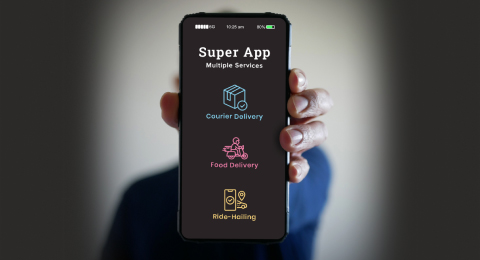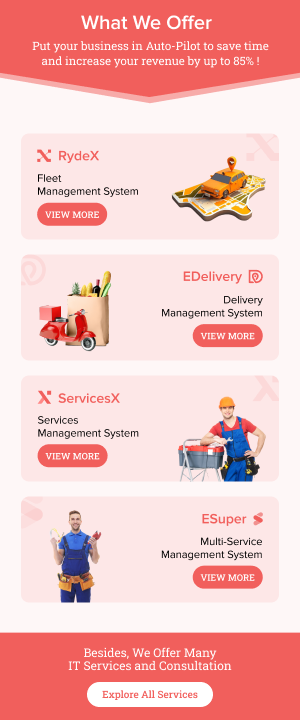
While shopping at a supermarket, you scan the QR code on your preferred coffee. You can see where the coffee beans were grown, picked, sorted, processed, and finally roasted. Could you track the supply and distribution to learn the mode of transportation, the amount of time it took to get to the store, and other information?
Is there a technology that can assist in gathering data at each stage and making it transparently accessible to everyone? Yes, welcome to the world of Blockchain technology.

Source: PwC
It is only a matter of time before we all turn into elderly people who are unable to comprehend and keep up with even the most basic of technology because new ones are always emerging. Blockchain is the newest technology to the list of ones that have us doubting our technological acumen.
Most of us need help understanding blockchain technology or cryptocurrency. Yet, whenever it comes up in conversation, we pretend to comprehend what our buddies are babbling about. Not to worry. Here, we’ll go over the fundamentals of blockchain technology and its business model in detail.
Blockchain enables the real-time recording of data about any event or transaction through a distributed, decentralized, peer-to-peer ledger that is immutable and replicated over numerous nodes connected by a network. It comprises links in a chain that are used to record digital assets securely.
Most of the industrial sectors out there have been interested in Blockchain. It not only changes how a firm runs, but it also makes innovation possible at a breakneck speed. As Blockchain is one technology that makes it more practical for widespread deployment, more firms are using it for their operations.
According to Gartner, businesses adopting blockchain smart contracts would see a 50% improvement in data quality by 2023. So how might blockchain technology help businesses succeed? What businesses do in response to this inquiry will determine the answer.
The best action is to find the appropriate business models and implement them. So let’s first define a blockchain model to understand better overall terms and the different parts connected.
A Simple Understanding of Blockchain Business Model
The blockchain business model is the collection of tactics employed by an organization to develop, enhance, and deliver a good or service. This is the general purpose of a business strategy, and it applies to all industries.
Blockchain business models are peer-to-peer networks built on decentralized exchanges that allow users to trade services and goods while also generating revenue.
The Blockchain’s decentralized architecture is at the heart of corporate operations, data storage, revenue collecting, and company expansion. Using Blockchain, end users are guaranteed a secure and open environment for data management, transactions, user interaction, etc.
Blockchain is a potentially effective cybersecurity business model since it offers insight into any data modification, revealing and exposing any criminal efforts before they have a chance to occur. Wow, that’s impressive. Let’s look at how blockchain business models can be used in various markets and how they might improve cybersecurity.
Statista states that companies will spend over $6 billion on distributed ledger technology (DLT) solutions in 2022. Companies like IBM, Microsoft, Walmart, and Goldman Sachs didn’t miss the chance to profit from this disruptive technology of the digital space, and they appear to be doing well.
Classifications of Blockchain Business Models
The nicest part about blockchain technology’s universality is that, despite the fact that banks and Fintech companies initially embraced it, it can still be adopted by numerous industries and introduced to diverse audiences. That explains why new applications and business models are always being developed.
The decentralized structure of blockchain technology assumes the primary roles of business operations, data storage, revenue collecting, and company expansion when it is incorporated into various business models.
Thanks to the Blockchain, peer-to-peer interactions, data management, and transactions are all made secure and transparent for end users. Additionally, it exposes any efforts at cybercrime before they can be carried out, arguing in favor of Blockchain as a platform that provides the highest levels of cybersecurity.
Here we are going to discuss the most common blockchain business models and some of their applications that are used in the real world.
P2P Blockchain Business Model

Source: ResearchGate
The legendary inventor of the first cryptocurrency, known by the infamous pseudonym Satoshi Nakamoto, had the idea for the peer-to-peer (P2P) trading concept. In this completely decentralized cash system, transactions are conducted digitally between peers and are not regulated by any one central authority.
The P2P cryptocurrency exchange development differs from other crypto exchange business models in a number of ways. Users favor the P2P crypto exchange over other methods due to these factors. The P2P crypto exchange is much superior to the other models in light of a number of these factors, which are as follows:
- Zero transaction cost
- Flexible prices
- Top-notch privacy
- No third-party involvement
Blockchain as a Service Business Model (BaaS)

Source: Alibaba Cloud
Blockchain-as-a-Service (BaaS) is a significant component of the blockchain economy that promotes business use of blockchain technology and advances its growth.
Blockchain technology is currently ruling the markets and has spread like wildfire. It offers a wide range of more productive and efficient applications than traditional networks.
Companies with core strengths in the fields but not in information technology (IT) can focus more on their core competencies while being less concerned about the development environment thanks to Blockchain-as-a-Service.
Token Economy – Utility Token Business Model

Source: DCX Learn
The utility token business model incorporates functionality into the company’s operation through tokens, which streamline network activities. As a result, the utility token business model is widely used in eCommerce platforms, startups, and established businesses today. Role, feature, and purpose are three crucial characteristics of the token utility.
There are two primary characteristics of the token model:
Attributes: It assists the token platform and configuration;
Token Flow: Interactions between the token and its holders, the exchange, and the substrate that form the basis of its economy.
Blockchain-Based Software Products
Businesses must buy a blockchain solution and integrate it into their system in order to adopt Blockchain more quickly. This will support the development of blockchain businesses that provide solutions and then sell them to larger corporations.
Demonstrating blockchain technology to businesses can be quite profitable since, in addition to receiving a fair payment upfront, they will also need to offer support after deployment. The sale of Spotify’s MediaChain Blockchain is the best illustration of this. This was done to address ongoing royalties concerns in the music business.
The scarcity of talent on the market, which makes it unnecessary for businesses to go through the arduous process of hiring people, is another justification for adopting this business strategy.
Other Development Platforms
Most potential investors are frequently turned off by the initial investment required by blockchain firms that develop DApps on frameworks like Ethereum. As a result, growing businesses like Monolith are now exploring substitute platforms that let developers create apps without being concerned about how price fluctuation could affect their work.
Parting Shot
Blockchain and business ideas are two words that are combined in blockchain business models. Anyone can now implement blockchain technology in their company, but to be successful, they must figure out how to apply its use cases to enhance current procedures. Since communities control them, cryptocurrencies have always been promoted as an alternative currency that can be used outside banks and other financial organizations.
Every year, the blockchain market expands, and we are now beginning to understand its possibilities fully. However, although it’s already clear that blockchain technology has a lot to offer in terms of cybersecurity and cross-border cooperation, this is only the beginning.
The market is still waiting for disruptive global solutions, and entrepreneurs are welcome to join. If you are one of those entrepreneurs who prefer to invest in emerging technology, Elluminati Inc is here to help you. Hire blockchain developers from us who help you maximize your business transformation quickly.








